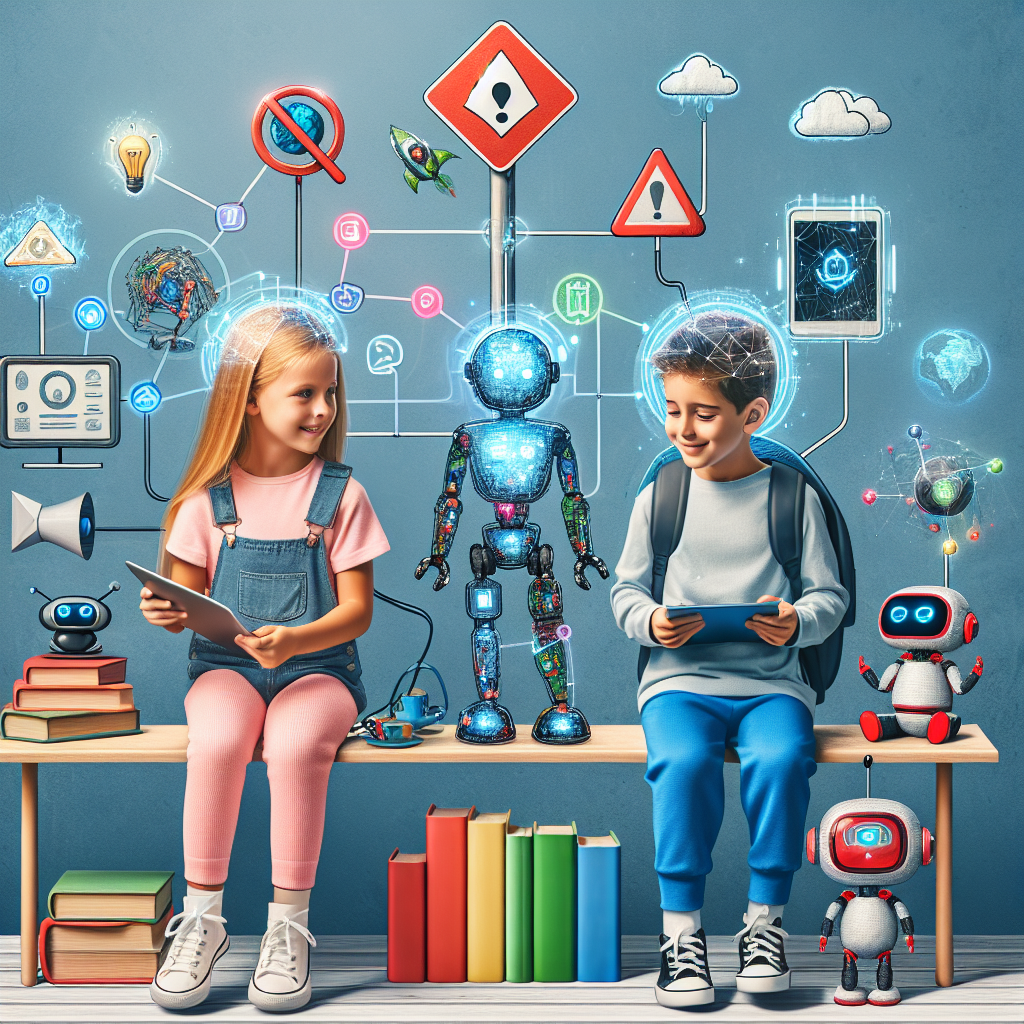Artificial Intelligence (AI) has become an integral part of our daily lives, from virtual assistants like Siri and Alexa to recommendation algorithms on streaming platforms and social media. As AI technology continues to advance, its impact on child development has become a topic of concern. While AI can provide countless benefits for children, such as personalized learning experiences and improved access to information, there are also risks associated with overexposure and dependency on AI.
One of the primary risks of overexposure to AI in children is the potential impact on cognitive development. Research has shown that excessive screen time, including interactions with AI devices, can have negative effects on children’s attention spans, memory, and problem-solving skills. Children who spend too much time engaging with AI may also have difficulty developing important social and emotional skills, as they may rely on AI for companionship and entertainment rather than interacting with peers and caregivers.
Furthermore, overexposure to AI can lead to a lack of critical thinking skills and independent decision-making. Children who are constantly provided with answers and solutions by AI may struggle to think critically, analyze information, and make informed decisions on their own. This can hinder their ability to navigate real-world challenges and develop resilience in the face of adversity.
Another risk of overexposure to AI is the potential for privacy and security concerns. AI devices collect vast amounts of data on users, including children, which can be used for targeted advertising, profiling, and other purposes. Children may not fully understand the implications of sharing personal information with AI devices, leading to potential risks of identity theft, cyberbullying, and other forms of online harm.
Dependency on AI can also have negative effects on children’s creativity and imagination. AI algorithms are designed to predict and cater to users’ preferences, which can limit children’s exposure to new ideas, perspectives, and experiences. Children who rely heavily on AI for entertainment and education may be less likely to explore their own interests, experiment with different activities, and engage in creative play.
Despite these risks, it is important to note that AI can also provide valuable opportunities for children’s development when used in moderation and under adult supervision. AI-powered educational tools can enhance learning outcomes by providing personalized feedback, adaptive challenges, and interactive experiences that cater to individual strengths and weaknesses. AI can also support children with special needs by providing tailored interventions and accommodations to meet their unique learning styles and abilities.
To help parents and caregivers navigate the risks of overexposure and dependency on AI in child development, here are some frequently asked questions and answers:
1. How can I limit my child’s exposure to AI devices?
To limit your child’s exposure to AI devices, establish screen time limits, set parental controls, and monitor their interactions with AI. Encourage outdoor play, social interactions, and hands-on activities to promote a balanced approach to technology use.
2. How can I promote critical thinking skills and independent decision-making in my child?
Encourage your child to ask questions, explore different perspectives, and solve problems independently. Encourage open-ended play, creative activities, and collaborative projects that foster critical thinking skills and decision-making abilities.
3. How can I protect my child’s privacy and security when using AI devices?
Review privacy policies, enable security settings, and educate your child about the importance of safeguarding personal information online. Encourage your child to use strong passwords, avoid sharing sensitive information, and report any suspicious activity or content.
4. How can I support my child’s creativity and imagination while using AI devices?
Encourage your child to explore diverse interests, experiment with new ideas, and engage in imaginative play. Limit screen time, provide opportunities for creative expression, and encourage storytelling, art, music, and other forms of creative expression.
In conclusion, while AI can offer numerous benefits for child development, it is essential for parents and caregivers to be aware of the risks of overexposure and dependency on AI. By promoting a balanced approach to technology use, fostering critical thinking skills and independent decision-making, protecting privacy and security, and supporting creativity and imagination, we can ensure that children have a healthy relationship with AI that enhances their learning and growth.

